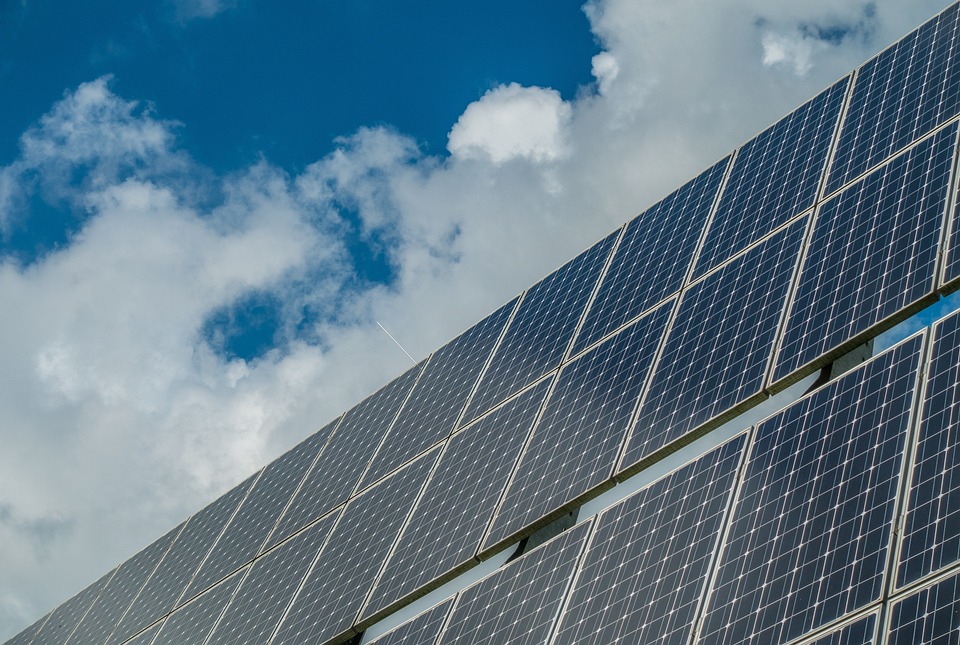Introduction
More homeowners in residential communities are adopting solar energy. The trend is gaining momentum. Many homeowners are turning to solar panels with the push for sustainable living and lower bills. They see them as a good solution. However, installing solar panels can be tough for those in HOA-regulated properties. It’s vital to know Oregon’s HOA solar panel rules and state laws that protect homeowners’ rights. This is key for anyone considering this green energy solution.
The Challenges of HOA-Regulated Solar Panel Installations
Homeowners within HOA-regulated properties often face several obstacles when installing solar panels. These challenges can range from aesthetic concerns to regulatory hurdles and more.
Restrictions on location and visibility
One of the most significant challenges is the restrictions on the location and visibility of solar panels. HOAs may have rules on solar panel placement. They often prioritize aesthetics over functionality. This can limit solar installations. Their ideal placement for maximum sunlight may not align with HOA rules.
Complex Approval Processes
Navigating the approval process within an HOA can be daunting. The process is often time-consuming and complex, leading to delays in solar panel projects. Homeowners must submit detailed plans and may need to attend board meetings to get approval. This adds bureaucracy to the installation process.
Higher Upfront Costs
HOA rules may require homeowners to use nice-looking solar panels. These designs can be more expensive. These extra costs can be a barrier for many homeowners. They make it harder to justify the initial investment, despite the long-term savings on energy bills.

Limited Understanding Among HOA Members
A key hurdle is the lack of understanding among HOA members and boards about the benefits of solar energy. This lack of knowledge can cause resistance to solar panel installs. It can also reduce support for them. This, in turn, complicates the approval process.
Varying HOA Rules and Guidelines
HOA rules and guidelines regarding solar panel installations can vary widely across different communities in Oregon. This inconsistency makes it hard for homeowners to know their rights and requirements.
Common HOA Objections to Solar Panel Installations
Homeowners often face HOA objections that can delay solar panel installs. A common objection is aesthetic. HOAs worry that solar panels will hurt the community’s uniformity and curb appeal. This opposition aims to keep property values and neighborhood standards. It stresses visual cohesion.
Another common objection involves potential damage to common property or shared structures. HOAs may fear the installation process. It could damage roofs or other common elements. These concerns stem from the possibility of leaks, structural damage, or future repair complications.
Liability issues are a major obstacle. Some HOAs fear being liable for any accidents or malfunctions from solar panel installations. It includes worries about poor installations. Panels could become dangerous in extreme weather, risking nearby properties and residents.
Finally, HOAs may oppose solar panels due to misconceptions about their energy use and savings. A lack of understanding of modern solar technologies sometimes fuels this skepticism. They can improve energy efficiency and reduce costs. We must communicate and educate. We need to show the benefits and advancements of solar panel technology.
Oregon’s HOA Solar Panel Rules and State Laws
Oregon law protects homeowners’ rights to install solar panels, even in HOA-regulated communities. Homeowners must know these laws to advocate for their solar projects.

Oregon Solar Access Laws
Oregon’s solar access laws aim to prevent unreasonable restrictions on installing solar panels. These laws ensure that HOAs cannot outright ban solar panels and must allow reasonable accommodations. Homeowners can install solar panels if they follow certain guidelines. These rules balance aesthetics and functionality.
The Role of Senate Bill 1520
Senate Bill 1520, passed in 2009, is critical to Oregon’s solar energy legislation. This bill tackles barriers to installing solar panels on homes, especially those from homeowners associations (HOAs). It bans HOAs from imposing rules that raise costs or lower efficiency in solar panel installations. HOAs cannot require specific placements or aesthetics for solar projects.
They cannot make them too costly or inefficient for homeowners. The bill empowers homeowners. It gives them a way to challenge unreasonable HOA rules and limit such restrictions. More residents can now use renewable energy. This saves money and helps the environment.
Key Provisions of the Law
- Reasonable Restrictions: HOAs can impose reasonable aesthetic restrictions. But, they can’t significantly affect the cost or efficiency of solar panels.
- Approval Timelines: The law requires HOAs to respond to solar panel requests within 60 days. Failure to respond within this period can be considered approval by default.
- Dispute Resolution: Homeowners can seek mediation or legal action if they believe their HOA imposes unreasonable restrictions.
Navigating the HOA Approval Process
Successfully navigating the HOA approval process requires preparation, patience, and effective communication. Here are some tips to help homeowners effectively engage with their HOA board.
Do Your Homework
Before submitting a proposal to your HOA, could you check your community’s rules on solar panels? I understand these rules. They will help you tailor your proposal to meet the requirements and address any concerns.
Prepare a Detailed Proposal
Create a full proposal for your solar panel installation. It must include detailed plans, diagrams, and specifications. Show how the project will meet HOA guidelines. Highlight the benefits of solar energy for the homeowner and the community.
Engage with the HOA Board
Proactively engage with your HOA board by attending meetings and discussing your plans. Building a rapport with board members can help facilitate a smoother approval process. Be prepared to answer questions and address any concerns they may have.
Highlight the Benefits
Educate your HOA board on solar energy’s benefits. They include savings, a cleaner environment, and higher property values. Providing evidence and real-world examples can help build a compelling case for your project.
Seek Mediation if Necessary
If you encounter resistance from your HOA, consider seeking mediation to resolve disputes. Mediation can provide a neutral space for both parties to discuss concerns and find solutions they both agree on.
Case Studies and Success Stories
Studying homeowners who installed solar panels despite HOA obstacles can inspire and teach us.
Case Study 1: The Smith Family in Portland

The Smith family initially faced resistance from their HOA due to concerns about the visibility of the solar panels from the street. They gained approval by presenting a detailed, attractive proposal. It had nice panel designs and showed solar energy’s long-term benefits. Their solar panels save a lot of energy. They have inspired other homeowners to consider solar energy.
Case Study 2: The Johnsons in Eugene
The HOA board lacked an understanding of solar’s benefits. This delayed the approval process for the Johnsons. They organized educational sessions and brought in experts to speak at HOA meetings. This built support for their project. Their persistence paid off, and they now enjoy solar energy’s financial and environmental benefits.
Financial and Environmental Benefits of Solar Energy
Investing in solar energy has many financial and environmental benefits. It can greatly help homeowners and communities.
Financial Benefits
- Lower Energy Bills: Solar panels can drastically reduce monthly electricity bills, providing significant long-term savings.
- Increased Property Value: Homes with solar panel installations often see an increase in property value, making it a smart investment for homeowners.
- Tax Incentives and Rebates: Oregon offers various tax incentives and rebates for solar panel installations, further reducing the overall cost for homeowners.
Environmental Benefits
- Reduced Carbon Footprint: Solar energy is a clean, renewable source of power that reduces reliance on fossil fuels and decreases greenhouse gas emissions.
- Sustainable Living: Adopting solar energy promotes sustainable living practices and promotes a healthier environment for future generations.
- Community Impact: If a community widely adopts solar energy, it can benefit the environment. This would create a more sustainable, eco-friendly neighborhood.
Conclusion
Navigating HOA solar panel rules in Oregon can be tough. But, with the right knowledge, homeowners can install solar panels and enjoy their benefits. Homeowners can help create a greener future. They can do this by understanding state laws, preparing detailed proposals, and engaging with HOA boards.
If you’re considering solar energy for your home, now is the time to take action. Explore the opportunities. Educate yourself and your community. Advocate for more solar-friendly policies within your HOAs and local governments. Together, we can make a significant difference in our environment and create a brighter future.
Oregon homeowners can confidently navigate HOA solar panel rules using this post and the guidelines. They can take steps to adopt solar energy. This guide is for both seasoned fans of renewable energy and newcomers. It offers valuable insights and practical advice.